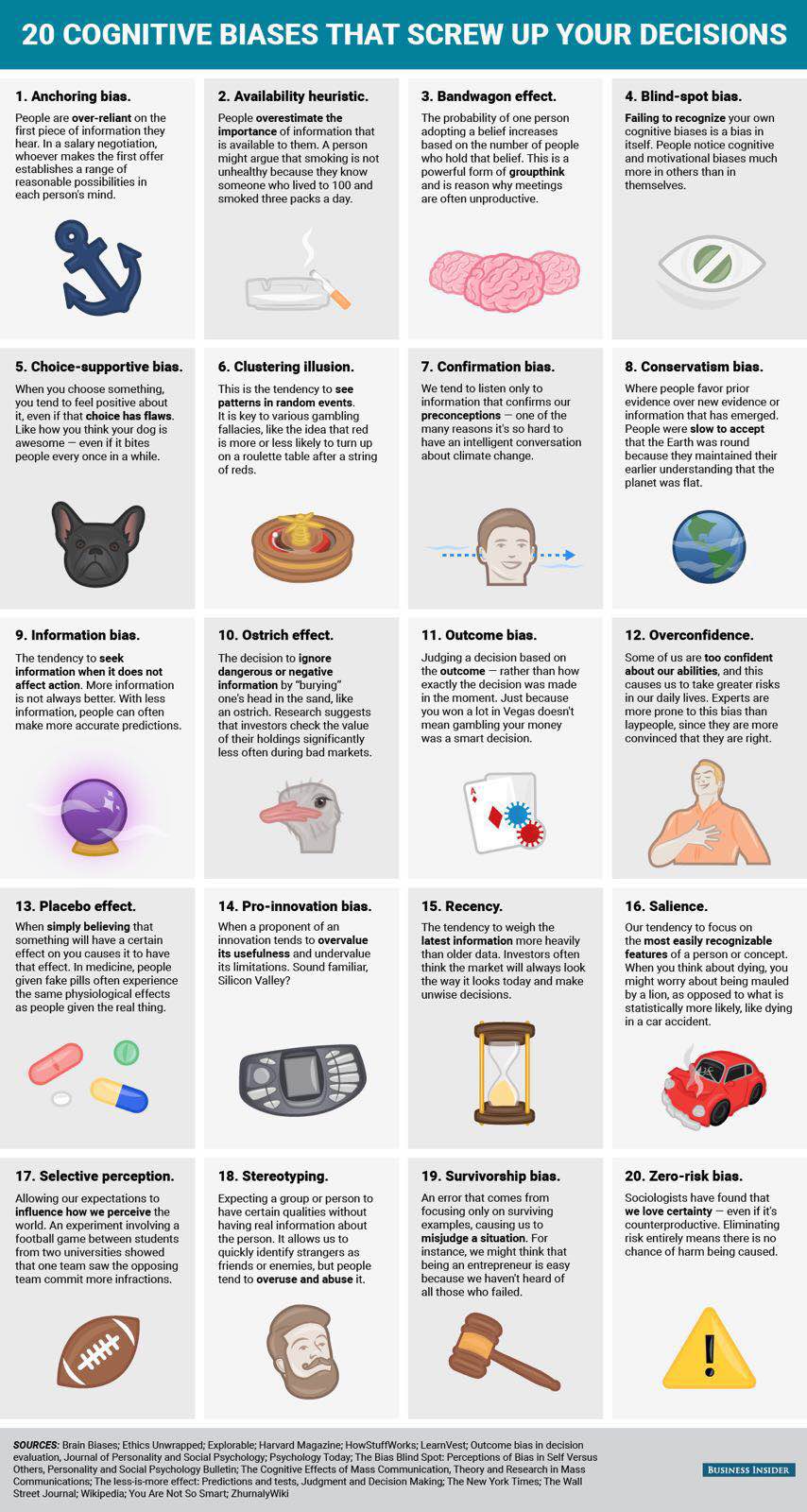20 Cognitive Biases that Screw Up Your Decisions (Infographic)
The guys at Business Insider have pulled research from many studies to create this cool infographic that defines some of the most cognitive stumbling blocks that can affect our behaviour and prevent us from making the best decision. Bias is continuing to plague companies in the recruitment process so going through each of these, let’s see how many you can apply to the recruitment space…

Source: Business Insider
Check out SocialTalent’s full suite of DEI Training, expertly designed to help your organization promote diversity and be more inclusive.
Applying it to the Recruitment Industry
A lot of the biases above overlap when it comes to recruitment but here is our take on how we can relate different types of biases to the recruitment process:
- Anchoring bias: This type of bias can have a strong impact on salary negotiations. For example, en employee can makes a unreasonably high salary request which ‘anchors’ the final judgement and may result in the employee getting a higher salary than originally intended.
- Availability heuristic: An example of this would be when an employer associates a candidate from a different ethnic background with easily accessible information that discriminates the candidate in a certain away, even if the probability of it being true is very small.
- Bandwagon effect: Also know as conformity bias, this is based on social pressure whereby an individual from a recruiting team notices that the majority of the group are leaning towards/away from a certain candidate and they will tend to go along with the group think rather than voice their own opinions.
- Blind-spot bias: Failing to recognise that we carry bias in our recruitment means that we will inevitably will. For example, companies have historically denied that their recruitment is biased in any way, even though the results (hired candidates) show differently.
- Choice-supportive bias: It is very easy to automatically believe that your choice of hire was the best one if you only remember the positive traits of the candidate.
- Confirmation bias: Employers can be overconfident in their belief of their recruitment methods and can actively search for ways to strengthen that belief if that challenged by other methods.
- Ostrich effect: A hiring manager knows that the recruiting process is flawed but doesn’t know how to fix it and so opts to act like an ostrich and bury their heads in the sand, hoping the problem will disappear.
- Overconfidence: Because they have conducted many interviews, even experienced recruiters can be overconfident when it comes to their ability to predict the outcome of an interview for example.
- Recency bias: Can occur when a recruiter/hiring manager makes a decision based on the most recent candidates. This is particularly prevalent during short and complex interviews. Check out our recent blog post where we discuss this more in-depth
So that’s our interpretation of cognitive biases as it pertains to recruitment. Can you think of any other examples? Let us know below!
(RELATED: How to: Increase Diversity Through Improved Recruitment and Hiring Processes)
